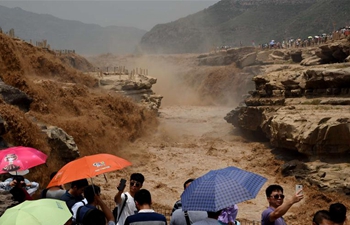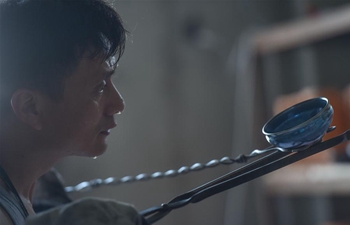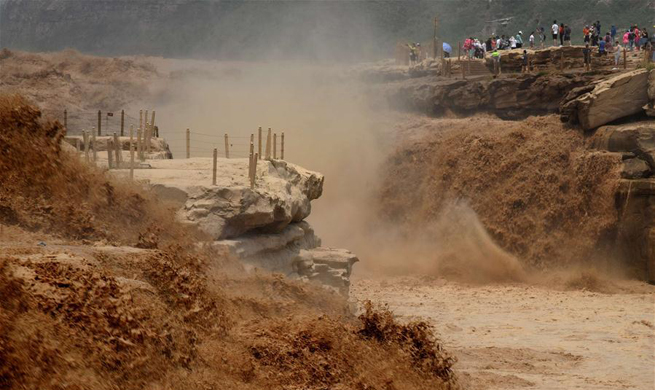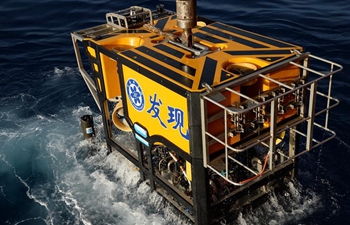by Will Koulouris
SYDNEY, July 27 (Xinhua) -- Paleontologists announced the discovery of "new" bones of an "old" dinosaur on Thursday, with the long thought to be lost site of an Austrosaurus mckillopi found in Australia's outback.
The name Austrosaurus, meaning "southern lizard," was given to the cretaceous-era sauropod back when it was discovered in 1932, but the dig site was thought to be lost until it was rediscovered in 2014 by a team of paleontologists.
Stephen Poropat from the Swinburne University of Technology spearheaded the drive to find the long-lost site, and told Xinhua on Thursday that this find has the potential to "tell us a lot" about how the evolution process for sauropod dinosaurs occurred.
"What the dinosaur represents is one of the oldest sauropods dinosaurs from the cretaceous period anyway, in Australia, it is actually represented by several bones," Poropat said.
"Basically, the bones we dug up in 2014, and 2015, belong to the exact same animal that was discovered in the 1930's. So together, those ribs and those vertebrae, not many bones - but enough to do something with them - that is the only specimen of Austrosaurus that has been found."
Poropat said by conducting a detailed analysis of the find, he was able to ascertain some "distinct characteristics" of Austrosaurus, and hopes to find a more complete specimen to fully develop an idea of the Australian dinosaurs position on the family tree - despite the inherent challenges.
"The simple fact is that in remote Queensland, most of the discoveries are made by people who make their living off the land. Paleontologists like me very seldom get the opportunity to go out there and do sustained searches for specimens," Poropat said.
"Also, because the Austrosaurus was buried in a marine environment, it's actually an environment that you wouldn't look at and would think it is unlikely to preserve these dinosaurs because they weren't living in the sea,"
"If they were going to be buried at the bottom of the sea, their carcasses would have to be washed into it, and then buried without being heavily scavenged," he added.
Because of this, the paleontologist is not expecting to find many more sauropods in the area that they surveyed; however, he is not ruling out anything as he continues his search to discover the secrets of these long- extinct creatures.
"We don't expect too many more sauropods to be found in the near future in that area," Poropat said.
"But of course, one chance discovery could change the game altogether."
















